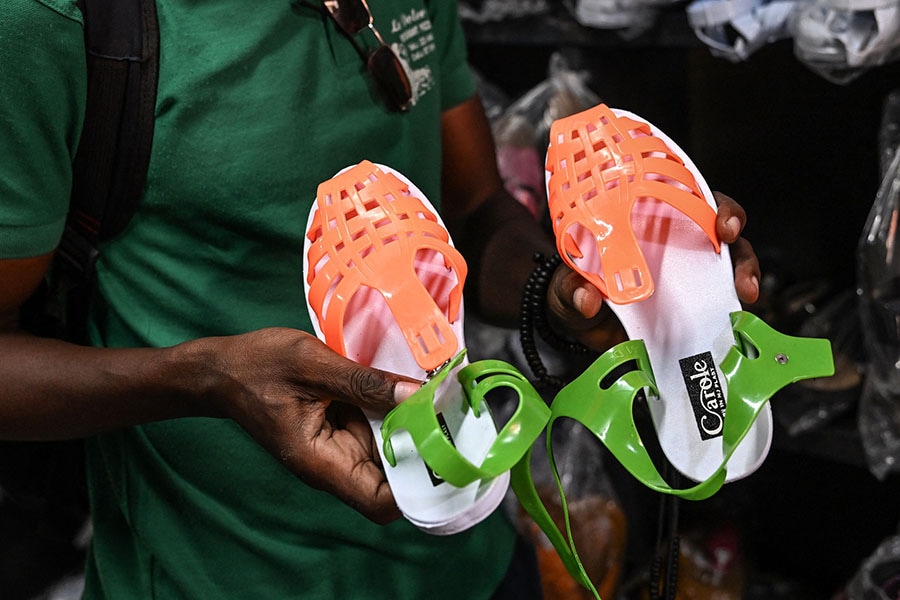
Ivory Coast's 'leke' sandals for the masses become a fashion statement
Ivorian fashion critic Emmanuelle Keita traces the leke back to the 1980s when they were worn solely by people with "limited financial means"
 Leke sandals have been sold in Ivorian markets "for 30 or 40 years" and not even the worldwide success of flip-flops has usurped what has become a symbol of Ivorian identity. Image: Sia Kambou / AFP©
Leke sandals have been sold in Ivorian markets "for 30 or 40 years" and not even the worldwide success of flip-flops has usurped what has become a symbol of Ivorian identity. Image: Sia Kambou / AFP©
In Abidjan, the rainy season is coming to an end, but people never put away their "leke"—cheap, water-resistant, plastic sandals, which have become a symbol of Ivorian cultural identity.
"Everyone has worn leke," said Rokia Daniogo, a 33-year-old shopkeeper, as she sat on a street corner in the huge market in the bustling Treichville district, where shoppers browse hundreds of stalls.
"All the children wear leke, even the babies," she added.
"They go off to play ball wearing them, they go off to school with them on," said the mother-of-four, whose children have all been wearing the sandals since they could walk.
A few metres (yards) away stood Ousmane Kaba, who sells—and wears—leke "every day".
"They sell well", especially to people aged 18 to 35 like him, and during the May-September rainy season, he said.







